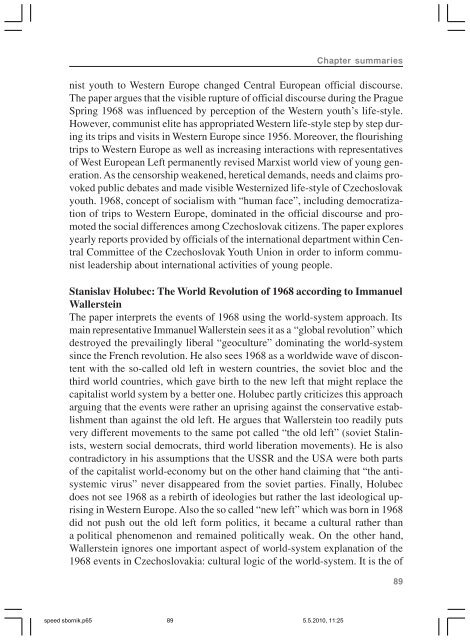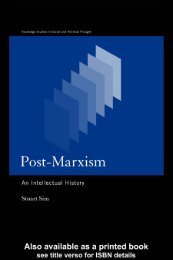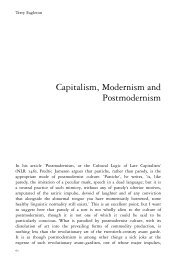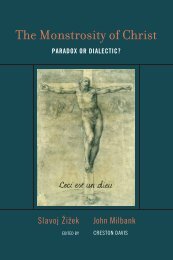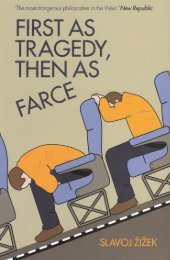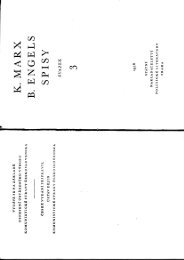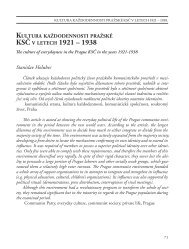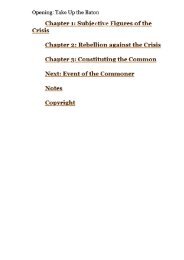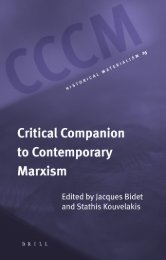Martin Franc-Stanislav Holubec (eds.): MladÃ, levice a rok 1968 - SOK
Martin Franc-Stanislav Holubec (eds.): MladÃ, levice a rok 1968 - SOK
Martin Franc-Stanislav Holubec (eds.): MladÃ, levice a rok 1968 - SOK
Create successful ePaper yourself
Turn your PDF publications into a flip-book with our unique Google optimized e-Paper software.
Chapter summariesnist youth to Western Europe changed Central European official discourse.The paper argues that the visible rupture of official discourse during the PragueSpring <strong>1968</strong> was influenced by perception of the Western youth’s life-style.However, communist elite has appropriated Western life-style step by step duringits trips and visits in Western Europe since 1956. Moreover, the flourishingtrips to Western Europe as well as increasing interactions with representativesof West European Left permanently revised Marxist world view of young generation.As the censorship weakened, heretical demands, ne<strong>eds</strong> and claims provokedpublic debates and made visible Westernized life-style of Czechoslovakyouth. <strong>1968</strong>, concept of socialism with “human face”, including democratizationof trips to Western Europe, dominated in the official discourse and promotedthe social differences among Czechoslovak citizens. The paper exploresyearly reports provided by officials of the international department within CentralCommittee of the Czechoslovak Youth Union in order to inform communistleadership about international activities of young people.<strong>Stanislav</strong> <strong>Holubec</strong>: The World Revolution of <strong>1968</strong> according to ImmanuelWallersteinThe paper interprets the events of <strong>1968</strong> using the world-system approach. Itsmain representative Immanuel Wallerstein sees it as a “global revolution” whichdestroyed the prevailingly liberal “geoculture” dominating the world-systemsince the French revolution. He also sees <strong>1968</strong> as a worldwide wave of discontentwith the so-called old left in western countries, the soviet bloc and thethird world countries, which gave birth to the new left that might replace thecapitalist world system by a better one. <strong>Holubec</strong> partly criticizes this approacharguing that the events were rather an uprising against the conservative establishmentthan against the old left. He argues that Wallerstein too readily putsvery different movements to the same pot called “the old left” (soviet Stalinists,western social democrats, third world liberation movements). He is alsocontradictory in his assumptions that the USSR and the USA were both partsof the capitalist world-economy but on the other hand claiming that “the antisystemicvirus” never disappeared from the soviet parties. Finally, <strong>Holubec</strong>does not see <strong>1968</strong> as a rebirth of ideologies but rather the last ideological uprisingin Western Europe. Also the so called “new left” which was born in <strong>1968</strong>did not push out the old left form politics, it became a cultural rather thana political phenomenon and remained politically weak. On the other hand,Wallerstein ignores one important aspect of world-system explanation of the<strong>1968</strong> events in Czechoslovakia: cultural logic of the world-system. It is the of89speed sbornik.p65 895.5.2010, 11:25


